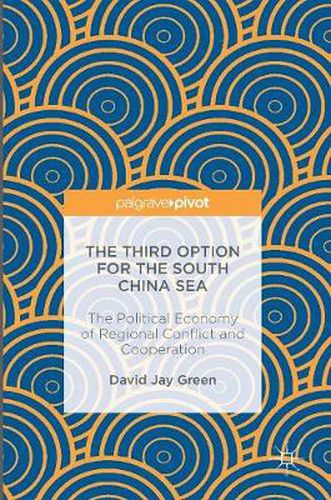Readings Newsletter
Become a Readings Member to make your shopping experience even easier.
Sign in or sign up for free!
You’re not far away from qualifying for FREE standard shipping within Australia
You’ve qualified for FREE standard shipping within Australia
The cart is loading…






This title is printed to order. This book may have been self-published. If so, we cannot guarantee the quality of the content. In the main most books will have gone through the editing process however some may not. We therefore suggest that you be aware of this before ordering this book. If in doubt check either the author or publisher’s details as we are unable to accept any returns unless they are faulty. Please contact us if you have any questions.
This Palgrave Pivot uses a simple model from game theory to explain the behavior of countries disputing ownership of resources and of small islands in the South China Sea. It argues that the rapid transformation of the region’s economy - the rise of Factory Asia - is not being acknowledged, leading countries to take chances beyond what a rational picture of costs and benefits would suggest. Regional economic cooperation may be a viable alternative to the present conflicts. However, the varied experience of regional initiatives in Southeast Asia provides a cautionary note that, while there is the potential for peaceful development of the South China Sea, there are significant challenges to structuring successful programs.
$9.00 standard shipping within Australia
FREE standard shipping within Australia for orders over $100.00
Express & International shipping calculated at checkout
This title is printed to order. This book may have been self-published. If so, we cannot guarantee the quality of the content. In the main most books will have gone through the editing process however some may not. We therefore suggest that you be aware of this before ordering this book. If in doubt check either the author or publisher’s details as we are unable to accept any returns unless they are faulty. Please contact us if you have any questions.
This Palgrave Pivot uses a simple model from game theory to explain the behavior of countries disputing ownership of resources and of small islands in the South China Sea. It argues that the rapid transformation of the region’s economy - the rise of Factory Asia - is not being acknowledged, leading countries to take chances beyond what a rational picture of costs and benefits would suggest. Regional economic cooperation may be a viable alternative to the present conflicts. However, the varied experience of regional initiatives in Southeast Asia provides a cautionary note that, while there is the potential for peaceful development of the South China Sea, there are significant challenges to structuring successful programs.